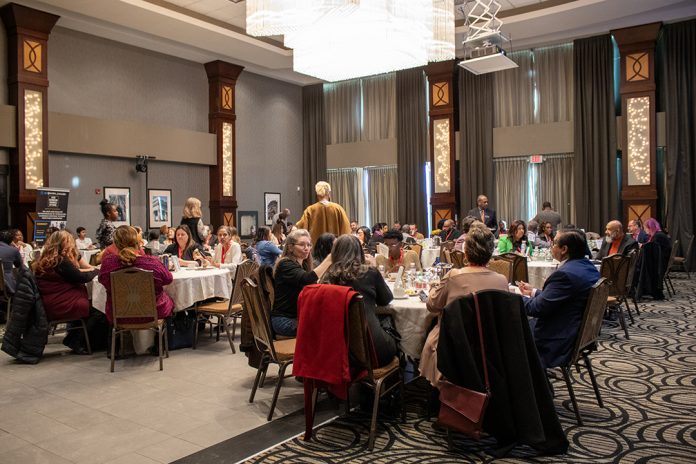“Generations building generations is not just a theme, it’s not a reality, it’s a responsibility that starts with recognizing that every interaction, every policy, every investment that you make, shapes the world that you leave behind,” said Dr. Vidal Chavannes, director of strategy, research and organizational performance at Durham Regional Police.
Dr. Chavannes was talking at the Whitby Chamber of Commerce’s Generations Building Generations event in celebration of Black History Month. The event took place on Feb. 7 and brought together Black entrepreneurs, business leaders and advocates to explore the impact of Black-owned businesses in Durham Region and the lasting legacy of entrepreneurship.
While Generations Building Generations centred on business success, the discussions expanded to broader issues of resilience, progress and persistent institutional challenges.
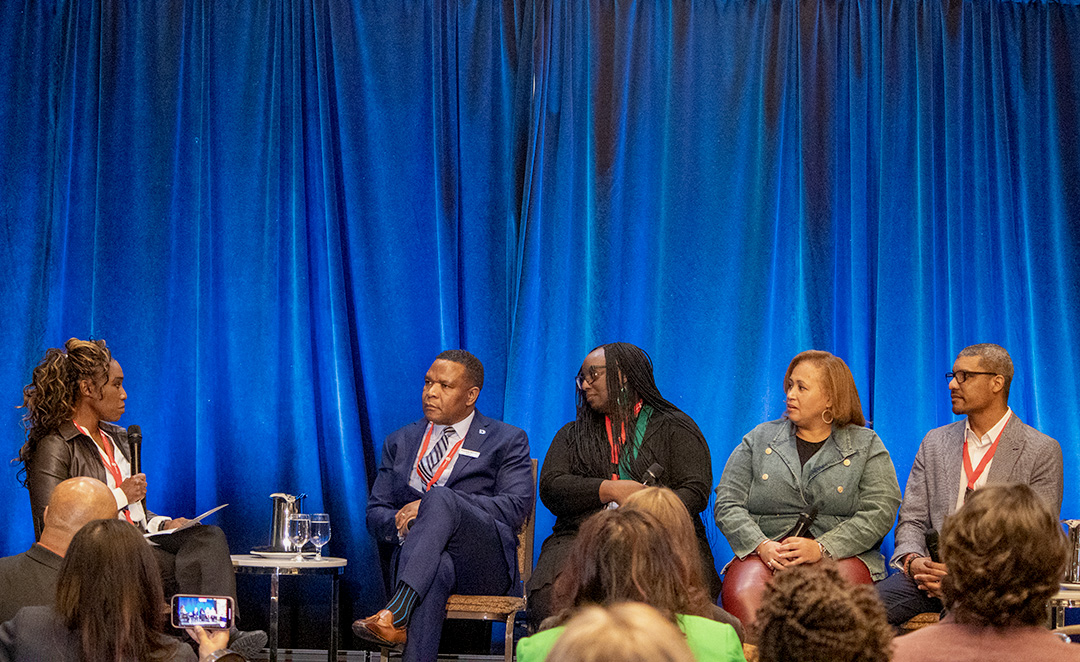
Business coach Judith Tait moderated a panel discussion which featured Nikki Clarke, founder of The Nikki Clarke Show; Natasha Halliday, a therapist, speaker and comedian; Francis Garwe, CEO of Durham Community Health Centre; and Mark Lorray, a business coach and author.
The event concluded with a fireside chat between Celina Caesar-Chavannes, executive director of the Canadian Community Economic Development Network and former Whitby MP, along with Ross Cadastre, founder of BIPOC Jobs.
Dr. Chavannes delivered the keynote address, urging attendees to challenge inclusive systems and recognize the long-term impact of their decisions. “We can choose to repeat patterns of the past, or we can lay the foundations for something better,” he said.
Garwe, who serves on the board of various organizations, expanded on the event’s theme, saying, “For me, that is building a foundation for what is to come. Building generations is understanding that what you do today should be able to outlive you for those generations to come.”
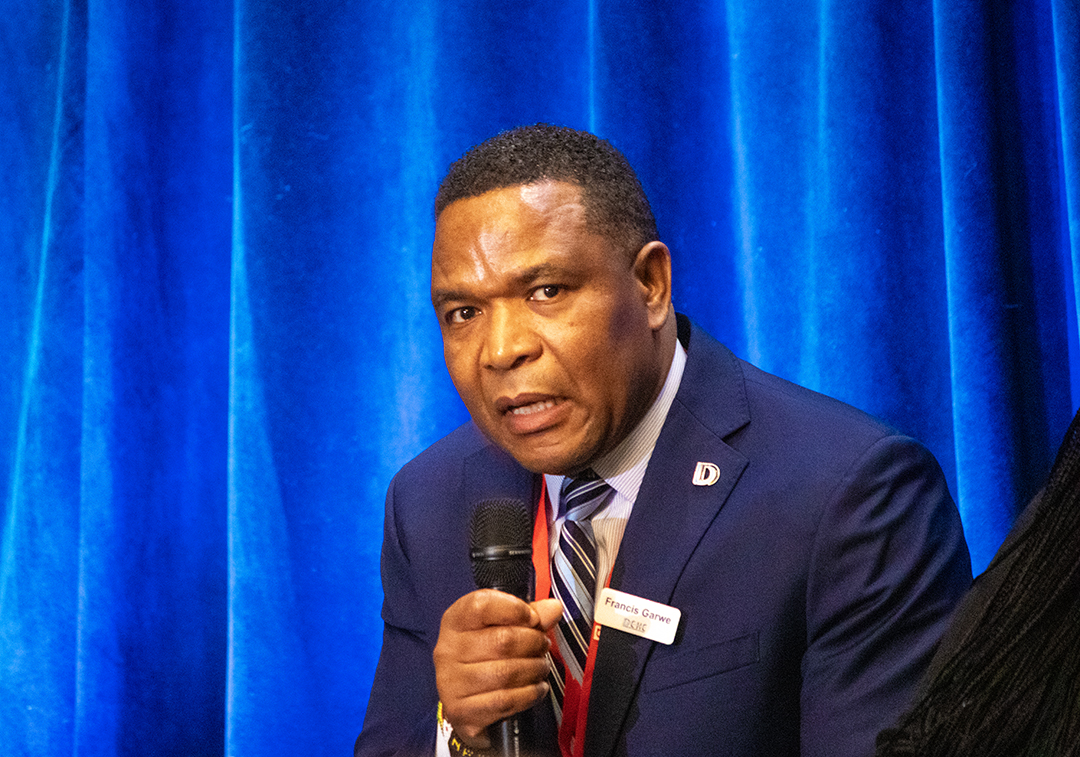
Dr. Chavannes addressed systemic inequality, particularly in policing throughout his presentation: Five Insights into Generations Building Generations. He cited research showing that Black men are nearly 24 per cent more likely than white men to receive a maximum initial security rating upon intake. Such ratings impact access to rehabilitation programs, which can significantly alter long-term outcomes, said Chavannes.
Chavannes also noted the racial disparities in policing in Durham Region, where Black residents make up approximately nine per cent of the population but account for 22 per cent of police use-of-force interactions.
“We need to figure out why that exists,” he said. “Left on its own, you’re either going to believe there’s a problem with criminality in the Black community, or you’re going to believe there are a bunch of racist cops out there to do harm.”
He highlighted that 19 out of 20 use-of-force interactions involving Black individuals stem from armed-person calls, with 95 per cent of those calls originating from the public, not the police.
“We’re not talking about police rushing around looking for Black people who might have a gun,” he said. “We’re talking about people calling the police and saying, ‘There’s a guy in my neighbourhood and he has a weapon.’”
He further pointed out that in 70 per cent of these cases, no weapon was found, raising questions about societal biases.
“Is there something happening in our society that causes somebody to see a Black person in their neighbourhood and assume they are armed—using the police as a proxy for their own biases and racism?” asked Chavannes.
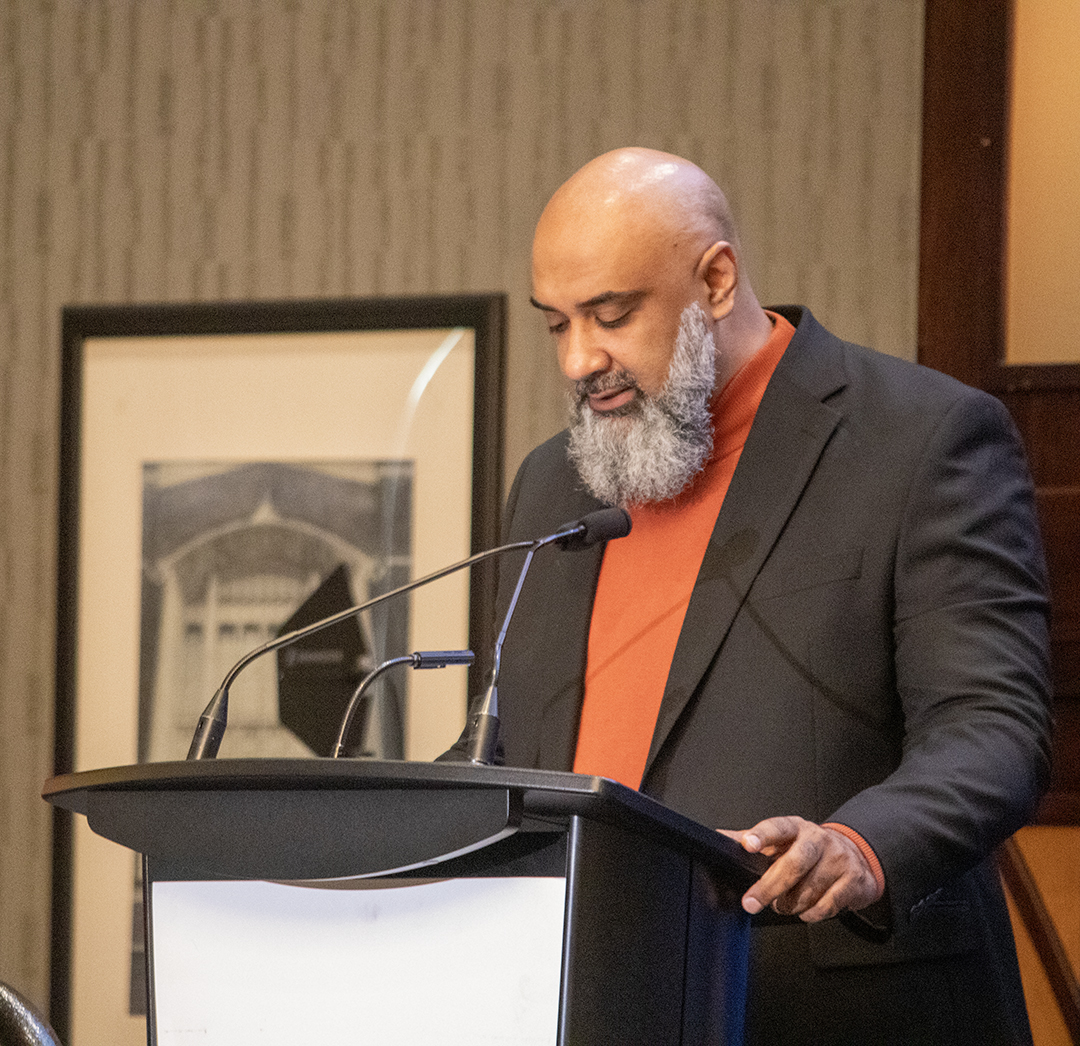
Chavannes referenced author and historian Ibram X. Kendi, reinforcing the notion that silence in the face of racism is complicity. “If you know that racism exists and you do nothing about it, then you are part of the problem,” he said.
“It’s your responsibility now, especially as a leader. It doesn’t matter what industry you’re a part of—if you know that racism exists, do something about it.”
He also addressed the everyday reality of self-preservation for Black individuals, sharing a personal experience with his son. He recalled a recent shopping trip where his son had bought candy. Before entering another store, he advised him to leave the candy in the car to avoid the risk of being accused of theft.
“We have to be part of the solution, but self-preservation is real,” he added. “There are people who profile Black folk looking like criminals.”
The discussion also touched on challenges faced by Black entrepreneurs, particularly access to funding. Lorray, who has strong ties to the local small business and real estate community, noted that financial barriers continue to hinder Black business owners.
Clarke, who served Canadian Black Chamber of Commerce(CBCC) as a national business and membership manager, added that while obstacles remain, more opportunities exist today, pointing to resources like the CBCC and the Black Opportunity Fund.
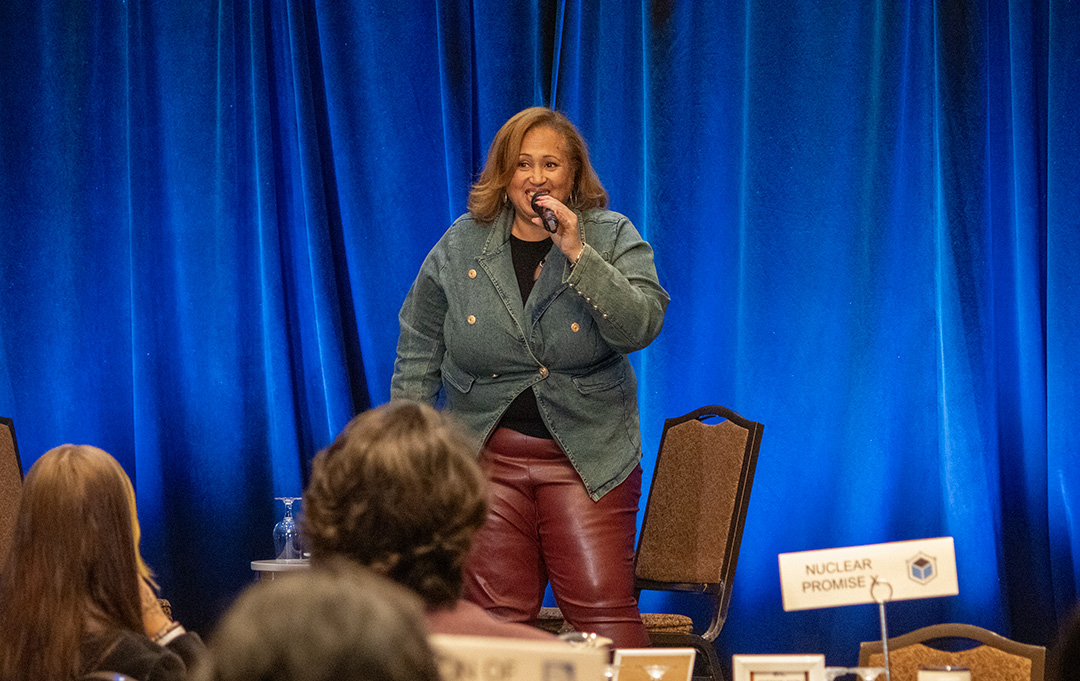
“They provide not only funding but also advocacy and education programs to bridge gaps in business knowledge,” Clarke said.
Halliday, the founder of Resilience P.A.C.T., a tool that gives individuals a formula for resilience emphasized the importance of mentorship, stating that having a mentor helps entrepreneurs navigate challenges more effectively.
“One of the great things about mentorship is having somebody help you get a few steps ahead rather than starting from scratch,” Halliday said. “It validates experiences and normalizes the challenges we face.”
Garwe, who has contributes to varioud public and not-for-profit organizations, reflected on the broader societal challenges, recounting a racist encounter early in his career.
“My first experience working with a judge involved a case between spouses. I had the case file and the first comment from this six-foot-tall man was, ‘What do you know, you Black man with an accent?’ He didn’t want me to touch his file.”
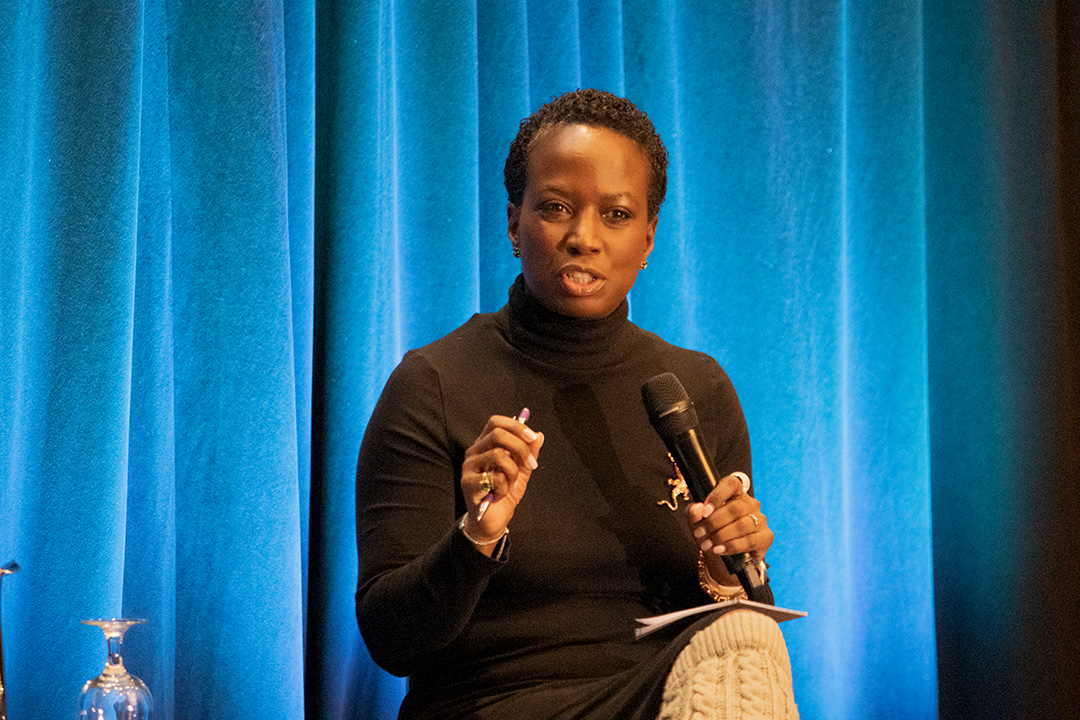
Caesar-Chavannes, who is also a business consultant and coach closed the event with a call to action.
“Know how powerful you are,” she said. “You didn’t get to where you are by accident. You survived spaces that weren’t built for us.”
She emphasized that future generations shouldn’t have to continue the same conversations about resilience and perseverance.
“Why can’t we be talking about joy?”
The event left a lasting impression on attendees. Neha Prasad, a relationship manager at Durham Commercial Team, reflected on the importance of using one’s voice wisely.
“The words you choose can make an impact in your life and in everyone’s life,” she said.
Alec King, communications and public relations lead for the Canadian Mental Health Association Durham, added, “It’s really powerful to hear people share their experiences and to know what I can do to be an ally.”
The discussions reinforced the importance of recognizing past injustices while actively working toward a better future.
“We shape the institutions we work in,” Dr. Chavannes said. “Every decision we make today affects tomorrow. What legacy are you building? Are you simply repeating the past, or are you creating new opportunities? Are you questioning systems, or just maintaining them?”




